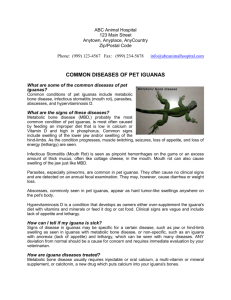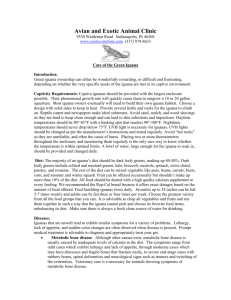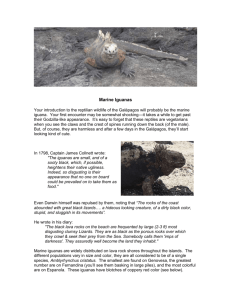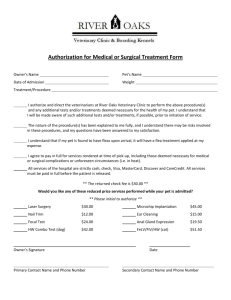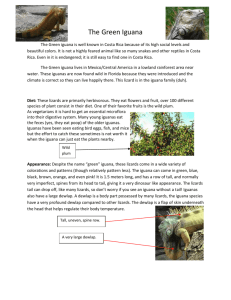common diseases of pet iguanas
advertisement
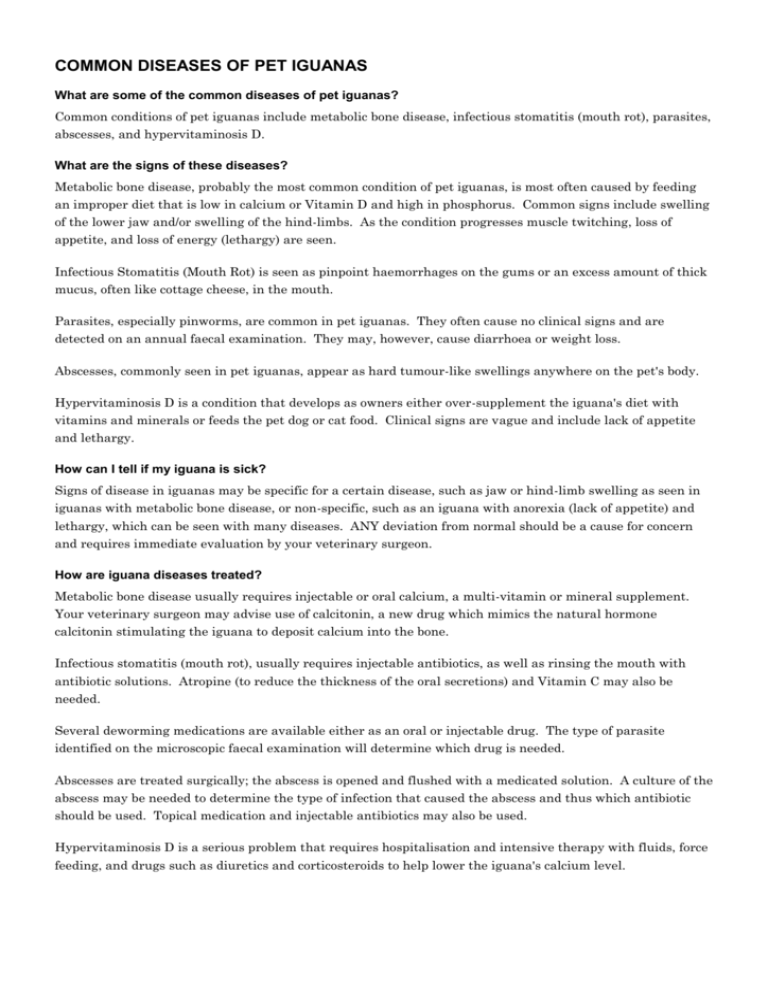
COMMON DISEASES OF PET IGUANAS What are some of the common diseases of pet iguanas? Common conditions of pet iguanas include metabolic bone disease, infectious stomatitis (mouth rot), parasites, abscesses, and hypervitaminosis D. What are the signs of these diseases? Metabolic bone disease, probably the most common condition of pet iguanas, is most often caused by feeding an improper diet that is low in calcium or Vitamin D and high in phosphorus. Common signs include swelling of the lower jaw and/or swelling of the hind-limbs. As the condition progresses muscle twitching, loss of appetite, and loss of energy (lethargy) are seen. Infectious Stomatitis (Mouth Rot) is seen as pinpoint haemorrhages on the gums or an excess amount of thick mucus, often like cottage cheese, in the mouth. Parasites, especially pinworms, are common in pet iguanas. They often cause no clinical signs and are detected on an annual faecal examination. They may, however, cause diarrhoea or weight loss. Abscesses, commonly seen in pet iguanas, appear as hard tumour-like swellings anywhere on the pet's body. Hypervitaminosis D is a condition that develops as owners either over-supplement the iguana's diet with vitamins and minerals or feeds the pet dog or cat food. Clinical signs are vague and include lack of appetite and lethargy. How can I tell if my iguana is sick? Signs of disease in iguanas may be specific for a certain disease, such as jaw or hind-limb swelling as seen in iguanas with metabolic bone disease, or non-specific, such as an iguana with anorexia (lack of appetite) and lethargy, which can be seen with many diseases. ANY deviation from normal should be a cause for concern and requires immediate evaluation by your veterinary surgeon. How are iguana diseases treated? Metabolic bone disease usually requires injectable or oral calcium, a multi-vitamin or mineral supplement. Your veterinary surgeon may advise use of calcitonin, a new drug which mimics the natural hormone calcitonin stimulating the iguana to deposit calcium into the bone. Infectious stomatitis (mouth rot), usually requires injectable antibiotics, as well as rinsing the mouth with antibiotic solutions. Atropine (to reduce the thickness of the oral secretions) and Vitamin C may also be needed. Several deworming medications are available either as an oral or injectable drug. The type of parasite identified on the microscopic faecal examination will determine which drug is needed. Abscesses are treated surgically; the abscess is opened and flushed with a medicated solution. A culture of the abscess may be needed to determine the type of infection that caused the abscess and thus which antibiotic should be used. Topical medication and injectable antibiotics may also be used. Hypervitaminosis D is a serious problem that requires hospitalisation and intensive therapy with fluids, force feeding, and drugs such as diuretics and corticosteroids to help lower the iguana's calcium level. Any of these diseases can be severe enough to cause a loss of appetite and lethargy. When seen, these signs indicate a guarded prognosis and the need for hospitalisation and intensive care, which can include fluid therapy and force feeding. Ark Veterinary Centre
